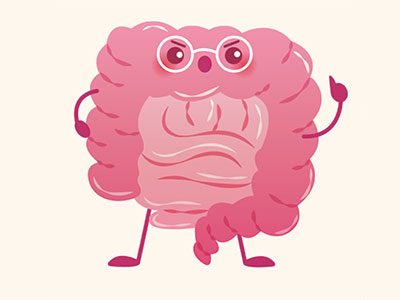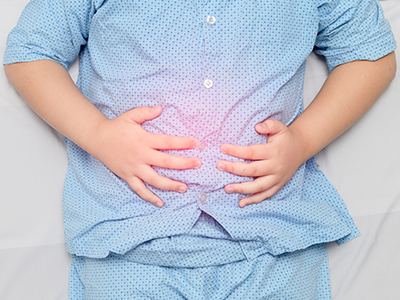Many otherwise-healthy children who repeatedly complain of abdominal pain or stomach aches for two months or more may have something called “functional abdominal pain.” The word “functional” just means that there is no underlying disease, obstruction, blockage, infection or inflammation causing the abdominal pain.
However, it is very important to recognize that the pain is 100 percent real, and is caused by something called “visceral hypersensitivity,” essentially meaning the digestive organs are extra sensitive and are perceiving pain even when digestion patterns are normal. Given that the pain is very real, it may cause the child to cry, break into a sweat or turn red or pale.
While we do not understand the exact cause of functional abdominal pain, the sensitivity in the digestive tract can be triggered by various things. These could include stress, anxiety, viral or bacterial infection or even an episode of constipation. The abdominal pain the child is experiencing may even interfere with school and play.
Functional abdominal pain in children is quite common — it is estimated that around 10-15 percent of school-aged children experience it. If you notice that your child’s abdominal pain complaints seem to be related to anxiety, functional abdominal pain is certainly a consideration. However, to be sure, it is always a good idea to discuss the issue with your pediatrician, and then further with a pediatric gastroenterologist if needed.
Your pediatrician or gastroenterologist will take a detailed history — where the abdominal pain is, when and how often it is happening, other symptoms such as changes in weight and bowel movements — to determine if any further testing is needed.
“Red flag” gastro-intestinal symptoms that would likely warrant further testing include things like:
- bloody stools
- weight loss or lack of growth
- unexplained fevers
- difficulty swallowing or painful swallowing
- vomiting that is persistent or otherwise worrisome
- diarrhea that is severe and chronic (more than 3 loose or watery stools per day for more than 2 weeks)
- awakening at night with abdominal pain or bloody stool
Your provider may also ask about any urinary symptoms, back pain, family history (such as any family history of inflammatory bowel disease or celiac disease) and skin changes.
Together with your child’s pediatrician, and if needed, with the help of a pediatric gastroenterologist, a plan can be created to evaluate and help your child manage their abdominal pain.
 https://riseandshine.childrensnational.org/wp-content/uploads/2017/09/kids-running-with-backpacks.jpg
300
400
Rise and Shine
https://riseandshine.childrensnational.org/wp-content/uploads/2017/11/childrens_riseandshine_logo.jpg
Rise and Shine2023-08-25 14:00:492025-09-15 12:28:04Avoiding backpack back pain
https://riseandshine.childrensnational.org/wp-content/uploads/2017/09/kids-running-with-backpacks.jpg
300
400
Rise and Shine
https://riseandshine.childrensnational.org/wp-content/uploads/2017/11/childrens_riseandshine_logo.jpg
Rise and Shine2023-08-25 14:00:492025-09-15 12:28:04Avoiding backpack back pain




















Leave a Comment
Want to join the discussion?Feel free to contribute!